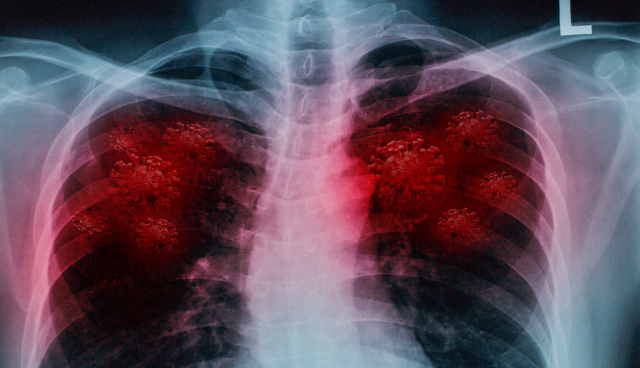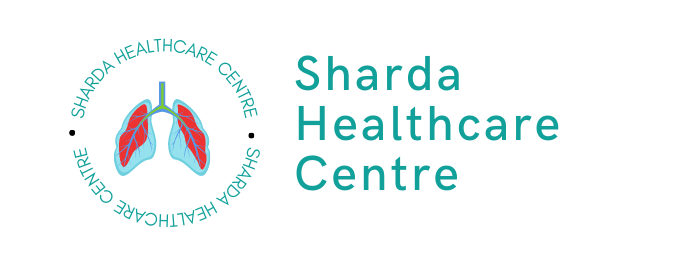
Chest Infection: Symptoms, Causes, and Treatments
Chest infection, also known as chest colds or acute bronchitis, are respiratory infections that affect the lungs, bronchi, and trachea. They are usually caused by viruses but can also be bacterial. Chest infections are common, especially during the winter months, and can affect people of all ages. While uncomfortable, most chest infections resolve within a few weeks with proper rest and care. However, it’s important to recognize symptoms as some cases may require medical treatment. This article will cover the signs, root causes, and home remedies and medical solutions for chest infection.
Symptoms of Chest Infection
The most common symptoms of a chest infection include:
- Coughing – Usually dry and persistent at first, then looser with phlegm later on. Coughing can last for weeks after other symptoms subside.
- Production of mucus or phlegm – Thick discharge coughed up from the lungs. Phlegm may be yellow, green, brown, grey, or bloody.
- Shortness of breath – Difficulty breathing deeply. Wheeziness may also occur.
- Fever – Temperatures between 100-104°F are common during active chest infections.Fever – Temperatures between 100-104°F are common during active chest infections.
- Chills – Feeling cold and shivery as the infection takes hold.
- Fatigue – Lethargy and weakness as the body fights the infection.
- Chest pain – A dull ache or tightness in the chest worsened by coughing or breathing.
- Headache – Especially during the onset of the illness.
- Sore throat – Often the first symptom, caused by mucus dripping down the throat.
- Congestion – Stuffy, blocked nose and sinuses.
What Causes Chest Infections?
Chest infections typically begin when an infectious agent enters the lungs and reproduces.
Viruses are the most common culprit, including:
- Rhinoviruses – The common cold
- Influenza
- Respiratory syncytial virus (RSV)
- Adenovirus
- Parainfluenza
- Metapneumovirus
Bacteria can also cause chest infections, either primary or secondary to a viral illness. Streptococcus pneumoniae and Haemophilus influenzae are two common bacterial sources.
Less commonly, chest infections may be caused by fungal or other infectious agents. This is more likely in those with impaired immune systems.
There are several ways these organisms can be spread:
- Airborne droplets – Coughing, sneezing, or close contact.
- Contact with contaminated surfaces.
- Complications from existing illnesses – Like COPD or asthma.
- Smoking – Smoke damage allows infection to take hold.
Treating Chest Infections at Home
For mild to moderate cases with no underlying health conditions, chest infections can often be treated at home effectively. Typical remedies include:
- Rest – This allows the body to devote energy to fighting the infection. Drink plenty of fluids and avoid strenuous activity.
- Over-the-counter medications – Cough suppressants, expectorants, decongestants, and pain/fever reducers like acetaminophen can relieve symptoms. Avoid giving aspirin to children.
- Saltwater gargling – Helps soothe sore throats and loosen mucus.
- Cough drops – Temporarily coat the throat to reduce irritation from coughing.
- Chicken soup – The warm broth can ease congestion symptoms. Stay hydrated.
- Honey – Has mild antibacterial and cough-suppressing effects. Adults can take 1-2 teaspoons every few hours. Not recommended for infants under one year old.
- Steam inhalation – Inhaling water vapor can moisten and open airways. Add menthol or eucalyptus for additional symptom relief.
- Chest rubs – Mentholated creams provide a cooling sensation and may loosen phlegm. Take care using on young children.
Medical Treatments for Chest Infections
For moderate to severe cases or if home care does not improve the chest infection, make an appointment with your doctor. Based on the examination, the doctor may:
- Prescribe antibiotics – If a secondary bacterial infection is the cause. These combat the bacteria but are ineffective against viruses.
- Provide nebulizer treatments – Medicated mist inhaled directly into the lungs for immediate relief. Often contains fast-acting bronchodilators to open airways.
- Administer cough medicine with codeine – A controlled substance that eases painful coughs. Must be prescribed by a doctor.
- Recommend an inhaler – For wheezing and shortness of breath. Albuterol is a common emergency inhaler for chest infections.
- Give oral or IV steroids – Reduces airway inflammation to help breathing.
- Prescribe anti-virals – For influenza which can lead to chest infections. Shortens duration and severity.

- Order imaging tests – Chest x-ray or CT scan to confirm diagnosis and check for complications like pneumonia.
- Hospitalization – For very severe cases with low oxygen levels or high risk patients. Oxygen therapy or IV medications/fluids may be administered.
How Long Do Chest Infections Last?
For otherwise healthy adults, the duration of a typical viral chest infection is:
- 1-3 days of initial symptoms
- 1-2 weeks of worst symptoms
- 2-4 weeks for full recovery
Bacterial chest infections treated with antibiotics tend to resolve more quickly within 7-10 days. Severe or chronic cases may last for months and recur without complete antibiotics or proper rest.
The best approach is to care for symptoms and rest while allowing your body time to heal. Avoid irritants like smoke. See your doctor if symptoms persist beyond two weeks or worsen instead of improving. Prompt antivirals or antibiotics can help shorten chest illnesses.
Good Diet and Lifestyle Habits for Chest Infections
Your diet and daily habits can impact your body’s ability to fight chest infections. Try incorporating these tips:
- Eat yogurt with live cultures – The probiotics support immune and gut health.
- Drink lemon water – Helps loosen congestion and provides vitamin C.
- Consume garlic – Contains antimicrobial and anti-inflammatory compounds.
- Increase vegetable intake – Carrots, spinach, and broccoli provide infection-fighting nutrients.
- Stay hydrated – Drink plenty of water, herbal tea, broth, and diluted juices.
- Use a humidifier – Moistens dry air which can further irritate airways.
- Avoid smoke, pollutants, and allergens – Reduces airway irritation when coughing.
- Take zinc supplements – Zinc supports immune response against pathogens.
- Get enough sleep – Quality rest enables the body to heal.
- Consider elderberry syrup – Some studies show it shortens cold duration.
- Diffuse eucalyptus oil – Has a decongestant effect.
Frequently Asked Questions About Chest Infections
Full recovery can take anywhere from 2-4 weeks in healthy individuals. Lingering coughs can persist up to a month after other symptoms have resolved. In higher risk groups, severe infections, or if treatment is delayed, complete recovery can take over a month.
Eating yogurt, garlic, vegetables, citrus fruits, staying hydrated, and avoiding irritants is beneficial. Chicken soup, honey, and zinc supplements may also help ease symptoms.
With proper care, viral chest infections typically last 1-3 weeks. Bacterial infections treated with antibiotics can resolve more quickly in 7-10
Conclusion:
Chest infections are common respiratory illnesses that can affect people of any age. Typical symptoms include cough, congestion, sore throat, and fatigue. While uncomfortable, viral chest colds usually resolve within 2-4 weeks with proper rest and home treatment. However, recurrent or worsening infections, difficulty breathing, or high fever warrants medical attention for further diagnosis and care. Bacterial chest infections may require antibiotics to recover fully. With a few lifestyle adjustments and the right medical care if needed, most people can bounce back well from a chest infection. Pay attention to your symptoms and follow up with a doctor if home remedies aren’t improving your condition within 7-10 days. With appropriate treatment guided by your physician, you can get back to full health after suffering from a chest infection.
